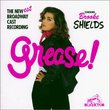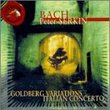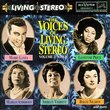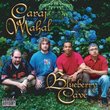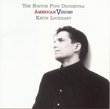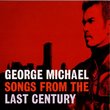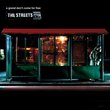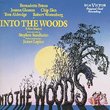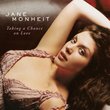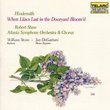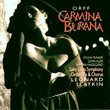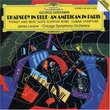| All Artists: Richard [1] Strauss, Fritz Reiner, Chicago Symphony Orchestra Title: Strauss: Don Quixote; Don Juan Members Wishing: 0 Total Copies: 0 Label: RCA Release Date: 3/26/1996 Genre: Classical Styles: Forms & Genres, Concertos, Theatrical, Incidental & Program Music, Instruments, Strings, Symphonies Number of Discs: 1 SwapaCD Credits: 1 UPC: 090266817023 |
Search - Richard [1] Strauss, Fritz Reiner, Chicago Symphony Orchestra :: Strauss: Don Quixote; Don Juan
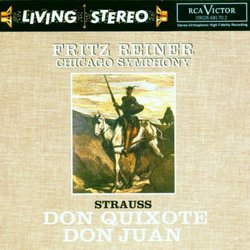 | Richard [1] Strauss, Fritz Reiner, Chicago Symphony Orchestra Strauss: Don Quixote; Don Juan Genre: Classical
The Don Juan is the blistering 1954 version as opposed to the well played but less inspired 1960 remake with the same performers. Fritz Reiner's earlier version sparkles with pointed and incisive section work, and richl... more » |
Larger Image |
CD DetailsSynopsis
Amazon.com The Don Juan is the blistering 1954 version as opposed to the well played but less inspired 1960 remake with the same performers. Fritz Reiner's earlier version sparkles with pointed and incisive section work, and richly hued yet razor-sharp tuttis. In Don Quixote, Antonio Janigro's steady, dependable portrayal of Cervantes's hero holds its own against more eloquent, imaginative soloists like Paul Tortelier and Mstislav Rostropovich. Reiner's forthright literalism, though, plays down the lighthearted, colorful scoring in the work's more descriptive, unbuttoned movements. If you're willing to shell out for multidisc sets, both Berlin and Dresden Tortelier/Kempe versions remain benchmarks. --Jed Distler Similar CDsSimilarly Requested CDs
|
CD ReviewsLegendary control in good but dating sound 08/27/1999 (4 out of 5 stars) "Reiner has a legendary reputation in Richard Strauss, and this disc certainly does nothing to distract from it. The 1959 performance of Don Quixote is quite masterly in its control, and has some graphic playing from the Chicago SO. My only reservation is that the reading is almost too controlled, and this extends to the soloists, including Janigro. Comparison with the Karajan/Fournier version of a few years later shows that the latter version has a greater since of spontaneity. The sound quality is good in this remastering, even though there is a degree of sponginess in the sound that betrays its age. My comments regarding spontaneity do not apply to Don Juan (1954), which is scintillating throughout (superb Chicago strings). Unfortunately, the recording here suffers from a touch of distortion at climaxes, strangely, as this is not a problem with the Zarathustra/Heldenleben coupling from earlier in the same year. I enjoyed this disc, although for Quixote I would turn first to the Karajan/Fournier version mentioned above." Another great Reiner/R. Strauss/Chicago recording! 04/21/1999 (5 out of 5 stars) "On this Living Stereo CD, Reiner gives his incomparable statements on the two Dons that Richard Strauss set to music in two of his best-known tone poems. Antonio Janigro provides great cello obligato accompaniment, in many ways more alert and every note clearly enunciated than on the well-known Szell/Fournier/Cleveland recording. Chicago Symphony Concertmaster John Weicher and first chair violist Milton Preves provide equal backing to Janigro's cello playing. While I can find nothing wrong with Janigro's musicianship, I cannot help but think that Reiner regretted not recording Don Quixote earlier (this was recorded in 1959) while he had Janos Starker as his first chair cellist. Apparently to Reiner's great disappointment, Starker had left Chicago the previous year to pursue an independent career and to teach at Indiana University. Reiner had the greatest confidence and respect for Starker, and out of this trust Reiner had developed for Starker while the two were together at the Metropolitan Opera, he brought Starker with him when he arrived at Chicago.The second Don, that of "Don Juan", is Reiner's first (1954) recording of the two he made while in Chicago. The general concensus among Reinerphiles is that this is the preferred recording of the two; personally, I can tell little or no difference between these two great recordings as I obviously can in his two recordings of "Also sprach Zarathustra.""
|

 Track Listings (15) - Disc #1
Track Listings (15) - Disc #1